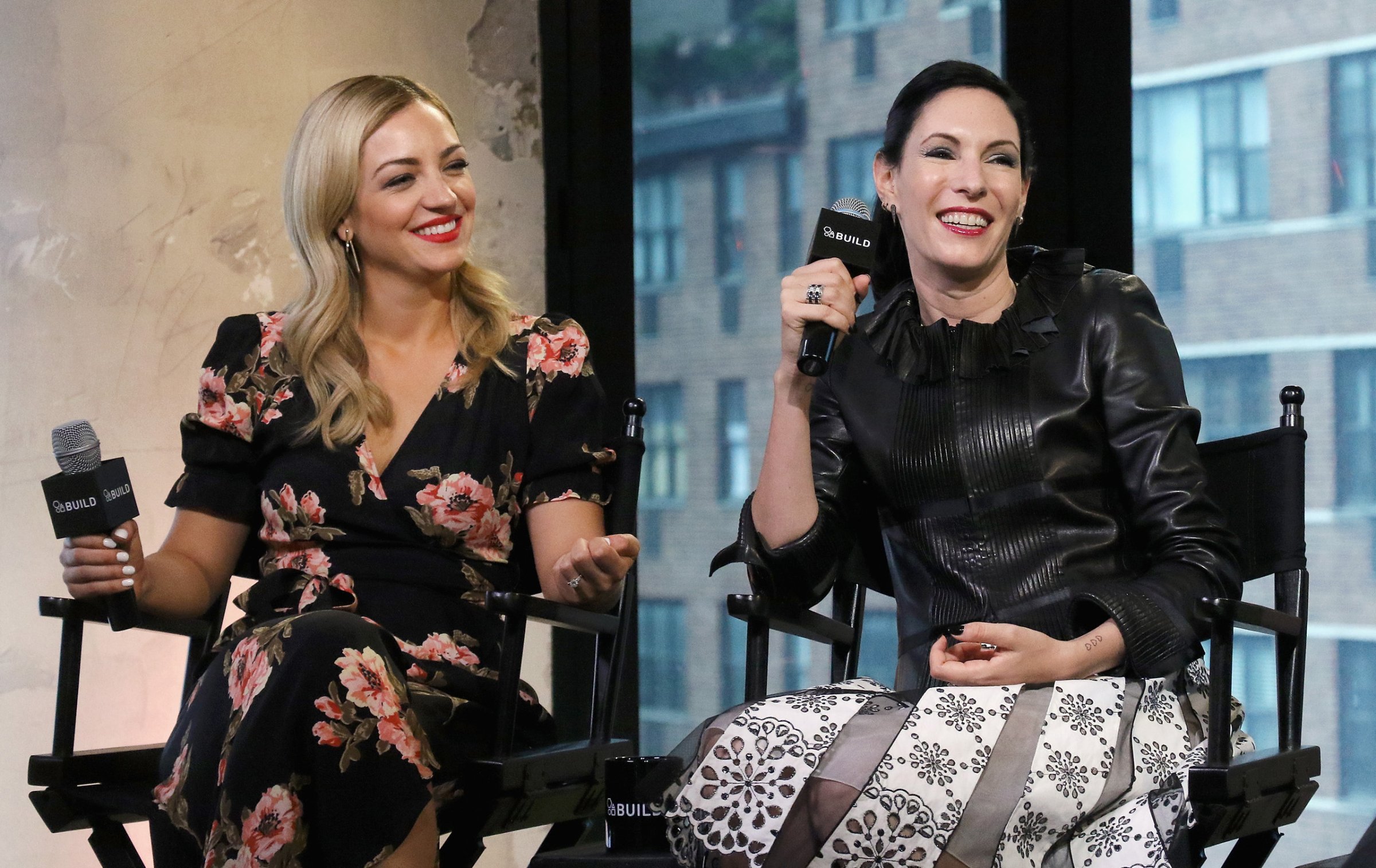
Last year, I placed Bravo’s Odd Mom Out on my year-end top ten list, a shout-out to the show’s unusual ability to act as an X-ray of its very particular milieu. But because that list ran months before the show returned for its second season, I’d like to deliver a re-up of sorts. Odd Mom Out, currently airing its second season Monday nights on Bravo, remains one of the summer’s most delightful shows—and a comedy with meaningful subversive bite.
The show’s protagonist, Jill Weber, is played by Jill Kargman, the show’s creator and a real-life New York City society figure. She’s convinced herself and everyone around her that she’s not like the other moms on the Upper East Side. She’s cool! After all, she has tattoos, likes rock music, and leans into her lack of a spray-tan with black manicures and bold cosmetic color stories. And so the show’s overarching story is about the process of lying. The point Odd Mom Out makes, in thirty-minute installments tied up with a Tiffany-blue bow, is that Jill is no better than the luxury-craving, leisure-obsessed mothers she looks down upon. Her perpetual striving to seem smarter and different is self-defeating and self-renewing—the perfect sitcom premise.
This season, Jill has attempted to get tickets to Hamilton, the show the rest of the moms in the school-drop-off line have been raving about for months—she’d blown it off, having other things to worry about. But in order to catch up with the rest of the clique she’s not sure she wants to be a part of, she uses every social advantage she can think of. Her status anxiety has caught up with her, and pushed her to a level of aggression far beyond the diva behavior she’d mock in another woman. In another episode, her family holds an “intervention” to insist she learn to drive, as she’s always felt a chic urbanite need not bother. Why does it matter? We cut in flashback to Jill, clad in funereal black in the Hamptons, insisting she borrow her sister-in-law’s driver to take her into town. Her indulgent sense of herself as grittily real can’t allow her to acknowledge the sea of privilege in which she swims.
Kargman, not an actor by trade, has the timing of a pro; she’d have been great in one of Whit Stillman’s 1990s society movies like Metropolitan or The Last Days of Disco. At that same intervention, Jill announces that she drank three glasses of red wine before breakfast in order to deal with her children—the sitter was out sick. It’s as though she said it to the air—everyone breezily moves on. There’s something satisfyingly dark and mean about that exchange, a sense of unsettledness that carries through the show’s every interaction.
When Jill shows up at the magazine for which she used to shoot photographs, a former boss treats her request to come back to work as a joke, or an embarrassment. Jill’s a mother now. In the professional world, this is a waste of her potential; in her social world, it’s the thing that defines her; in her own mind, it’s something she only considers when pushing back against it. The children are almost never seen, making the “Mom” of the title less a calling than a role to play in public. At one point, Jill asks her husband to go to a late-night rock concert with her and when he begs off, citing the kids’ wake-up times, she reacts as if slapped.
It’s not that the other moms on the show are quite so sympathetic. Our avatar for conventional WASP mommyhood, Jill’s sister-in-law Brooke (Abby Elliott), is an utter snob, a layabout with a novelty purse line who’s coined the term “shedonism” because “feminism” doesn’t work for her. Elliott is merciless in nailing down exactly why traditional uptown-Manhattan femininity is not an appealing path for a self-styled rocker. (And, as a side note: Between Elliott and her fellow Saturday Night Live alumnae Jenny Slate of Obvious Child, Casey Wilson of Happy Endings, and Michaela Watkins of Casual, it’s worth asking just how SNL let quite so much talent go unheralded in the last decade.)
But Brooke isn’t a villain. Neither, for all her blindered prejudices, is Jill; she’s harmless, unless embarrassing herself is “harm.” Odd Mom Out is shrewd and self-lacerating in the best way; Kargman, depicting an exaggerated avatar of herself, knows exactly what she’s doing. The show’s framing gives way, satisfyingly, to moments that would be breakthroughs if the “Jill” character were able to really see herself. But week after week, she’s blinded to her own shortcomings by her disdain for how snobbish everyone else is. The show reboots itself endlessly, and the irony is chilly enough that, for those of us who can’t get out East to the Hamptons, it could slake the heat of a New York City summer.
More Must-Reads from TIME
- Inside Elon Musk’s War on Washington
- Meet the 2025 Women of the Year
- The Harsh Truth About Disability Inclusion
- Why Do More Young Adults Have Cancer?
- Colman Domingo Leads With Radical Love
- How to Get Better at Doing Things Alone
- Cecily Strong on Goober the Clown
- Column: The Rise of America’s Broligarchy
Contact us at letters@time.com